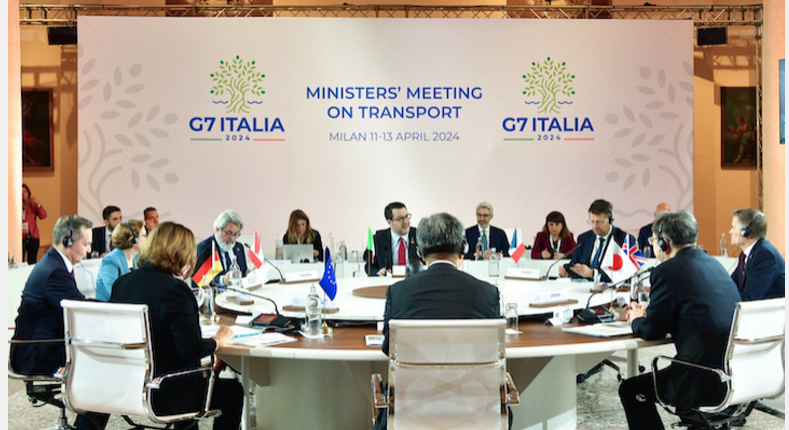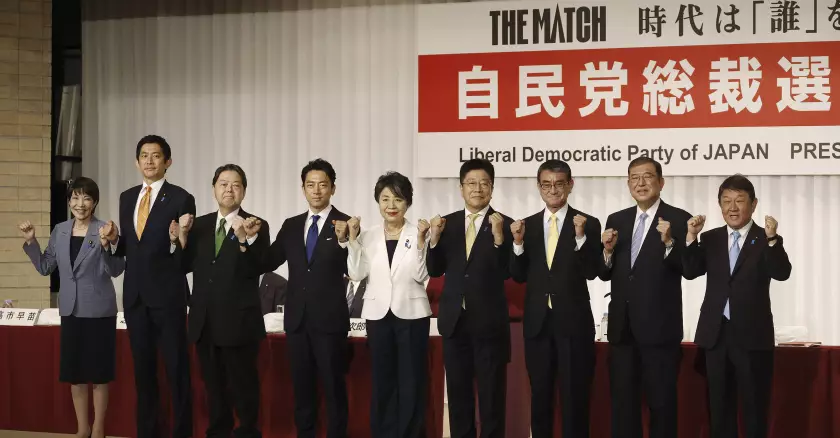A doctrinal break at the latest Italy G7 transport ministerial meeting?

The Italian G7 Transport Ministers’ Meeting was held at the Palazzo Reale in Milan between April 11 and 13, 2024. The meeting, chaired by Italian Vice-Premier and Minister for Infrastructure and Transport Matteo Salvini, brought together the transport ministers of the G7 countries, as well as European Transport Commissioner Adina Valean and the Secretary General of the International Transport Forum Young Tae Kim.
A 67-point declaration entitled “The future of mobility: Ensuring Global Connectivity in an Uncertain World” was adopted by the participants. It focuses in particular on the need to strengthen transport systems against current geopolitical shocks (war in Ukraine, Houthi attacks in the Red Sea), but also to effectively meet future challenges (AI, quantum technologies, cyber-attacks, pandemics).
In terms of global infrastructure, and in line with previous meetings, the declaration reaffirms the importance of the G7 Partnership for Global Infrastructure and Investment (PGII) – conceived as an alternative to China’s New Silk Roads – and mentions in particular the Trans-Caspian Transport Corridor (Middle Corridor, linking China to Europe via Central Asia and Turkey) and the Lobito Corridor (linking the Indian Ocean to the Atlantic Ocean via Tanzania, the DRC and Angola).
Remarkably, it makes no explicit mention of the IMEC project, which has been weakened by the war in Gaza. It reaffirms the G7’s support for the development of quality infrastructures in the least developed countries, through the certification of the EU Global Gateway, the Japan-US Blue Dot Network and FAST-Infra.
One of the most important points to note, according to the Italian press, was the mention in a G7 declaration of the principle of “technological neutrality.” This principle, which promotes market freedom vis-à-vis the authorities in the choice of technologies used to achieve certain regulatory objectives, particularly in the field of energy transition, had been undermined by the European Union’s decision to ban combustion engines for new cars from 2035. This was against the wishes of Germany and Italy, who argued for the possibility of fuel innovation, as is the case in maritime transport (through the Strategy on Reduction of GHG Emissions from Ships supported by the ICAO) and air transport (with the promotion of SAF).
This apparent rebuff by the G7 countries to the European decarbonization doctrine, which in the automotive sector involved all-electrics, is seen as a political victory for Italy and Deputy Prime Minister Salvini, who is fighting for his political survival in Italy. In fact, the principle of technological neutrality was already present in the latest declaration by transport ministers during the Japanese G7 summit.
Above all, it will naturally have to be ratified by the next European Parliament, and by the new European Commission that will emanate from it. Nonetheless, it still represents a strong political signal, even for the undoubtedly somewhat disconcerted industrialists who had begun to prepare for the battle to achieve these objectives.




